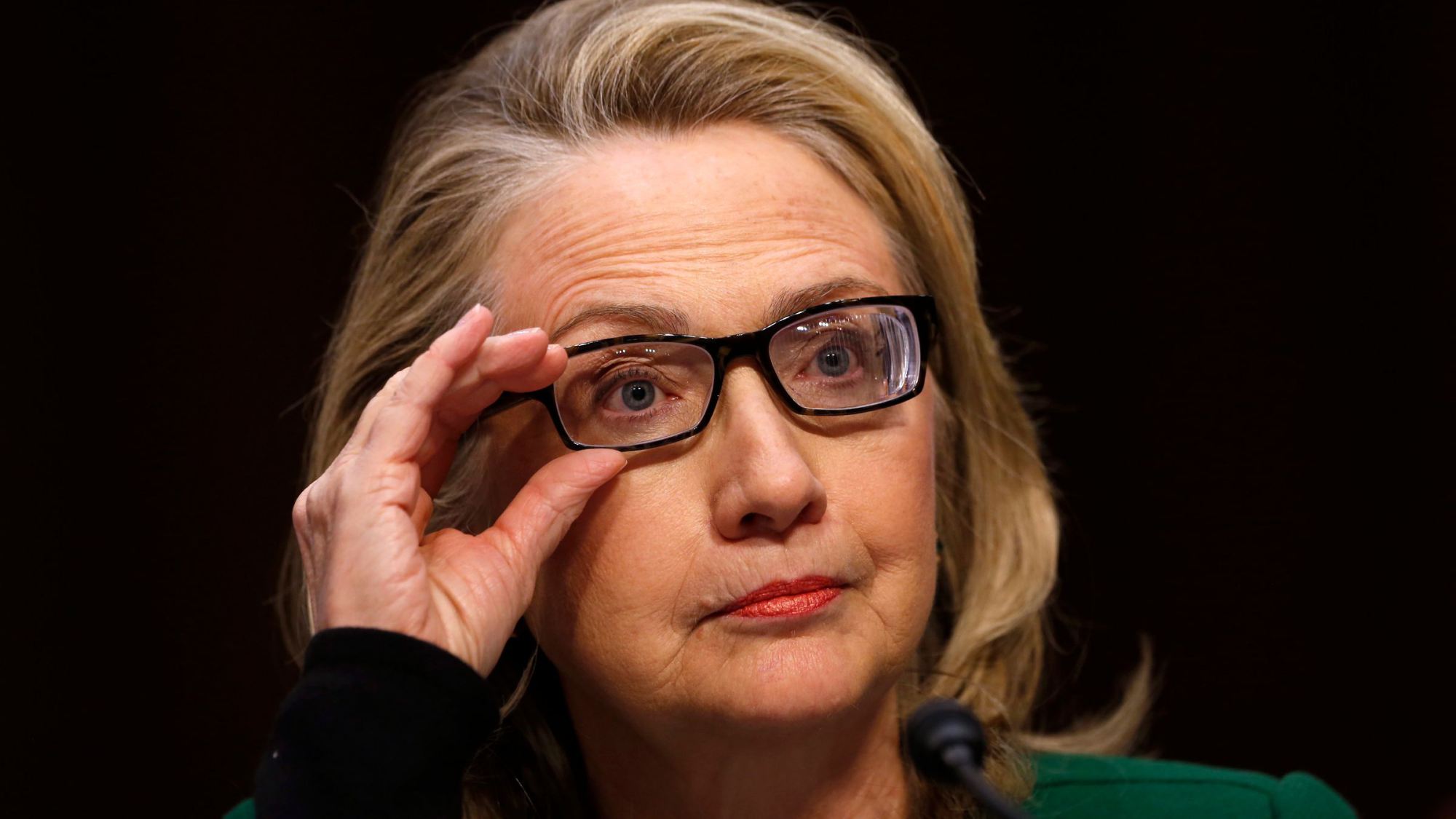Two new polls out this morning show Americans’ view of Hillary Clinton is shifting quickly, and not in the right direction for the two-time presidential candidate. But what’s causing the swift decline? Hint: It’s not the scandals. Well, not just the scandals.
From TIME:
A growing proportion of Americans have negative views of Hillary Clinton, according to new polls, even as the former Secretary of State remains the overwhelming favorite for the Democratic presidential nomination.
The CNN/ORC survey released Tuesday showed that more Americans now have an unfavorable view of Clinton than at any time since 2001. Fifty percent of Americans say Clinton does not inspire confidence, up from 42% in March of 2014. Fewer think she cares about people like them. And a growing number of people, now up to 57%, do not consider her honest and trustworthy. (emphasis added)
An ABC News/Washington Post poll released Tuesday found similar drops in Clinton’s trustworthiness. And while Clinton remains the prohibitive favorite in the Democratic primary race, the gap between her and top Republican contenders is shrinking, according to the CNN poll. In head-to-head match-ups with Republicans, Clinton is facing a stiffer challenge [from] Marco Rubio, Rand Paul, Scott Walker and Jeb Bush than in previous surveys.
Do you see the common thread?
None of these polls have anything to do with Clinton’s position on issue X or Y. They are a reflection of trust.
Trust. Authenticity.
Can I trust you? Are you going to look out for me? Are you who you say you are?
Barack Obama won reelection not because Americans agree with his policies — they don’t. But they still believed he was trying to do the right thing. His veneer of authenticity held up. Suddenly the ridiculous selfie stick schtick makes more sense.
Far more damaging to Clinton than making a bad policy decision (Benghazi) is her inability to inspire trust and her lack of authenticity. As more Americans hear about the real Clinton, not the caricature created by her media team, they realize there is a gap between the perception and the reality. Do we want to elect a woman president? Sure! Absolutely, if she’s a great leader. But if Hillary can’t demonstrate leadership qualities, or inspire trust, she’s not going to be the first woman president.
This is where Clinton’s relative inexperience with campaigning in the digital era really shows. In the past, a campaign could lock the candidate in a room for months to make fundraising calls without ever taking a press question or having to engage on policy issues. All that mattered was being able to raise enough money to run enough ads to convince people of whatever you wanted to convince them.
That model simply no longer works. The 30-second ad isn’t dead. What is dead is believing that the 30-second ad is everything.
This is why you see Marco Rubio performing so well so quickly. He presents a relatable, trustworthy candidate.
This is why Scott Walker took an early hit — when people got to ask him questions, he gave the wrong answers and word got out. But now, he’s gone back to school and is giving the right answers. He’s also leading in Iowa.
This is also why Jeb Bush might be the surprise stalking horse of the race. He’s a very interesting, engaging, thoughtful person, but that’s not what voters have as a top of mind impression. The perception of Gov. Bush is so entrenched it just may take some time to let the person break through. As he does more public events, it will be interesting to see how his numbers shift, and if the real Jeb Bush can break through the perception.
Several other candidates have the same curb appeal with authentic, interesting stories to tell.
Hillary’s calculating, manipulative strategies may have worked two decades ago. But what got her here won’t get her there. Hillary Clinton will have a hard time portraying trust and authenticity, much less being trustworthy and authentic. While it may be too late for her, candidates up and down the ballot can benefit from her example: Be authentic, now. Build trust, now.


